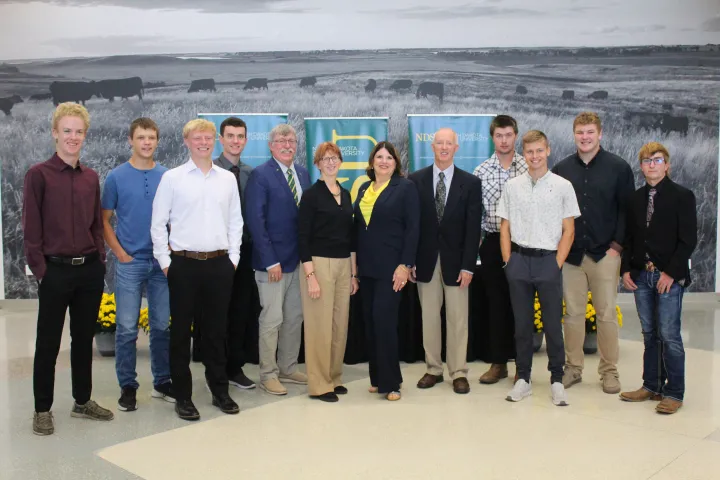Shape the Future of Agriculture, Food, and the Environment
At North Dakota State University, the Department of Agricultural and Biosystems Engineering is where innovation meets impact. We prepare students to lead in a rapidly evolving world—where technology, sustainability, and biology converge to solve some of today’s most pressing challenges.
As a student in our program, you'll gain hands-on experience and a strong engineering foundation that opens doors to dynamic careers in agriculture, food systems, environmental stewardship, and beyond. Whether you're passionate about sustainable farming, precision ag technology, or protecting natural resources, our department offers the tools, mentorship, and real-world learning experiences to help you thrive.
Our mission is to discover and apply cutting-edge knowledge through teaching, research, and outreach. From developing more efficient agricultural systems to enhancing food processing technologies and advancing environmental resource management, our work has real-world impact—and you can be a part of it.
You’ll also benefit from our active research programs and statewide Extension outreach, which connect students directly with the communities we serve. Whether you want to work in the field, in the lab, or in policy and planning, you’ll graduate ready to make a difference.

Our Programs
-
Major
-
Major and Minor
-
Master's and Ph. D.
Engineering Solutions for a Sustainable World
The Agricultural and Biosystems Engineering (ABEN) program at North Dakota State University prepares students to tackle real-world challenges at the intersection of engineering, biology, and sustainability. Our graduates apply their knowledge to design innovative solutions that support food production, environmental protection, and energy efficiency—ultimately helping meet the essential needs of life.
In ABEN, you'll gain a solid foundation in math, science, and engineering while developing specialized expertise in biological systems. Our program equips you to solve complex problems related to:
- Producing and processing food, feed, fiber, and fuel
- Protecting soil, water, and air quality
- Designing machines, sensors, and systems for agriculture and the environment

Powering the Future of Smart, Sustainable Agriculture
The Agricultural Technology program at North Dakota State University prepares students to lead in the fast-changing world of modern agriculture. By blending science, technology, and business, this program equips students with the technical expertise and problem-solving skills needed to manage advanced agricultural systems and technologies.
Students gain hands-on experience with cutting-edge tools and practices, including:
- Unmanned aerial systems (drones)
- Remote sensing and GPS technologies
- Artificial intelligence and machine learning
- Robotic systems and precision machinery
- Cloud computing and big data analytics
- Site-specific crop and resource management

Scholarships and Financial Aid
Thanks to generous donors and alumni, the department is proud to offer impactful scholarship support to many incoming and current students.
One of the newest awards, the Peltier Scholars, is awarded to 10 new first-year or new transfer students annually. The Peltier Scholars program will help fill a critical workforce need by introducing more students to the career opportunities available at the intersection of agriculture and engineering.





